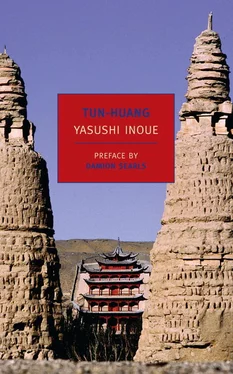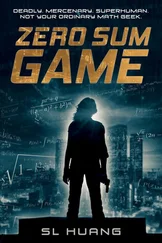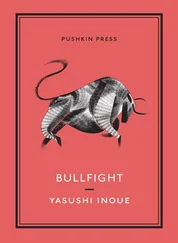Spring came and went in these unsettled conditions, and summer was approaching. One day Hsing-te was strolling in a shopping area near the South Gate. As he walked his whole body suddenly became wet with perspiration. Just as he left the main shopping area and was about to enter the corner marketplace, he saw a woman approaching, and before he could stop himself, he cried out, “It’s that woman!” He was sure it was the Hsi-hsia woman he rescued at the marketplace in K’ai-feng: her appearance and expression were identical. Without thinking, he went up to her.
“Do you remember me?” he asked. The woman stared hard at him with a strange expression on her face, and then replied, “No, I don’t.”
“You’ve been to K’ai-feng, haven’t you?”
“No.” The woman shook her head forcefully, then broke out into peals of laughter. As soon as Hsing-te saw her face as she laughed, he knew he had made a mistake. She looked very much like the other woman, but it was not her.
Hsing-te walked away. It was then he noticed that many women around him resembled that Hsi-hsia woman. They all had thick eyebrows, dark eyes, and lustrous skin.
For the first time in ages, he thought of the woman at the K’ai-feng marketplace who had been instrumental in bringing him to his present fate. The figure of the completely naked, sullen woman lying on the board came to his mind’s eye. The emotional impact he had felt on that long-gone day had not faded; it still had the power to move him. Deeply affected by the idea that he had possibly forgotten something very vital, he continued his walk through the streets of Hsing-ch’ing.
By chance Hsing-te heard about Wang-li when he returned to his lodgings that day. He learned of Wang-li’s recent activities from a Hsi-hsia soldier transferred from Kan-chou. According to this man, Wang-li had been appointed to guard a valley fortress eighty miles west of Kan-chou, and he had already been stationed there with three thousand troops for half a year. When Hsing-te heard this, he recalled Wang-li’s blazing eyes. As commander of three thousand men, Wang-li must be eagerly looking forward to an all-out battle. No doubt he had volunteered to defend this frontier base in search of a savage fight. Considering the man’s past, of which he had heard rumors some time before, Hsing-te felt he could somehow understand why this Chinese warrior, now assigned to the vanguard in a foreign country, sought such violence.
Unexpectedly, a desire to return to the front line awoke in Hsing-te. He had not once felt so strongly about it before. He remembered his promise to Wang-li, and his vow to the girl. The year’s limit had already passed, yet he felt obliged to keep his word. Wang-li and the Uighur girl might be waiting for him. For the first time since his arrival in Hsing-ch’ing, Hsing-te’s eyes shone with life.
Ten days later Hsing-te joined some troops on their way to the front and set off for Kan-chou for the second time. He had traveled on this road before; this time he was going the other way.
When they entered Liang-chou, the troops stopped for five days. Hsing-te also spent those days in the city, which had changed completely in the past three years. Before it had the look of a frontier outpost, but now there were rows of shops and tree-lined streets neatly laid out. Here, too, Hsi-hsia signs were everywhere. As it was the rainy season, the men had to stay indoors the whole time.
Ten days after leaving Liang-chou, the troops reached Kan-chou. Here they were not allowed to enter the walled city. From outside it was hard to tell what was going on within, but numerous troops constantly came and went, and Kan-chou seemed to have become a special military head-quarters, completely changed since Hsing-te had lived there.
After a night outside the garrison, Hsing-te left the following morning for the outpost in the west where Wang-li was stationed. If he could not enter the city, that was that, and he felt there was no point in remaining. Hsing-te joined a small transport unit traveling west. The area west of Kan-chou was completely new to him. On the first day they traveled over streams and rivers which alternated with sand bars. On the second day they crossed similar terrain, and toward evening neared the banks of the stream called Hsi-wei; about five miles away, southwest along the stream, was Wang-li’s base. Here Hsing-te left the unit. He reached the stream banks and rested a while. Night had fallen, but it was as light as day in the bright moonlight. He walked his horse slowly along the stream, which flowed like a white sash in the wind.
Wang-li’s base was in a small village at the foot of the Ch’i-lien mountains. Hsing-te spotted the fortress; in the moonlight it seemed like a huge cemetery. As he approached it, two cavalrymen rode out from the gate to question him. Both were Chinese.
Led by these two, Hsing-te entered a narrow passage flanked on either side by stone and mud walls, turned many corners in the maze-like streets, and suddenly came upon a large open space. The mountains behind them shone in the moonlight. There were many houses, but they all seemed to have been converted into military quarters. In the past it had apparently been a small farming settlement in the valley, but it had lost the peacefulness of a village and the distinctly regimented atmosphere of a military base prevailed.
Wang-li occupied what appeared to be the largest house in town. Hsing-te was led to it by the cavalrymen. They were kept waiting in the front yard for a short while. Then Wang-li appeared and approached him slowly. Standing in front of Hsing-te with legs spread apart, he peered into the young man’s face, as if to make certain it was really Hsing-te.
“Hmmm, so you’re alive.” He seemed to say this to himself. Then he turned his flashing eyes on Hsing-te. In the two years since Hsing-te had last seen him, Wang-li had aged. His skin had lost its luster, and there were small blemishes on his forehead. His beard appeared white in the moonlight.
“You didn’t come back when the year was up, so I thought you died somewhere.” Then Wang-li suddenly said, “She died!” He spat the words out.
“Died?” Hsing-te did not understand, so he asked, “Who died?”
“ She died,” Wang-li said, then started to walk slowly away.
“Who died?”
“Don’t ask me!” Wang-li sounded angry.
“Do you mean the girl?” Hsing-te disregarded Wang-li’s anger.
“She’s dead. A dead person will not come back. Don’t ask any more questions.”
“How did she die?”
“She was sick.”
“What kind of illness did she have?” Wang-li almost stopped, but continued walking.
“In any case, she was sick. It was a great loss,” said Wang-li.
“You regret her death?”
“As much as if I lost a city.”
“Did she leave any message?”
“None at all. I’m not the type of person to visit death-beds.”
“Why do you feel her loss as much as if you’ve lost a city?” Hsing-te could not understand why Wang-li should feel this way about the girl’s death.
“If the world were at peace, she would have been a princess.” Wang-li shook his head vigorously. “When I tell you not to ask questions, I mean it. I only kept my promise to you. That’s all there was to it.” He left Hsing-te and went inside.
A little later, Hsing-te was called into the building. Wine had been prepared and many officers had gathered. Wang-li was now very cheerful, completely different from before. He praised Hsing-te, apparently pleased that Hsing-te had returned as he had promised. Wang-li had aged, but his dignity and stature as commander had increased.
By the time Hsing-te woke up the next day in his new quarters, Wang-li and more than half the troops at the base had already left. He learned that many arrows had been shot into the garrison at dawn, and Wang-li had immediately led his men out.
Читать дальше












